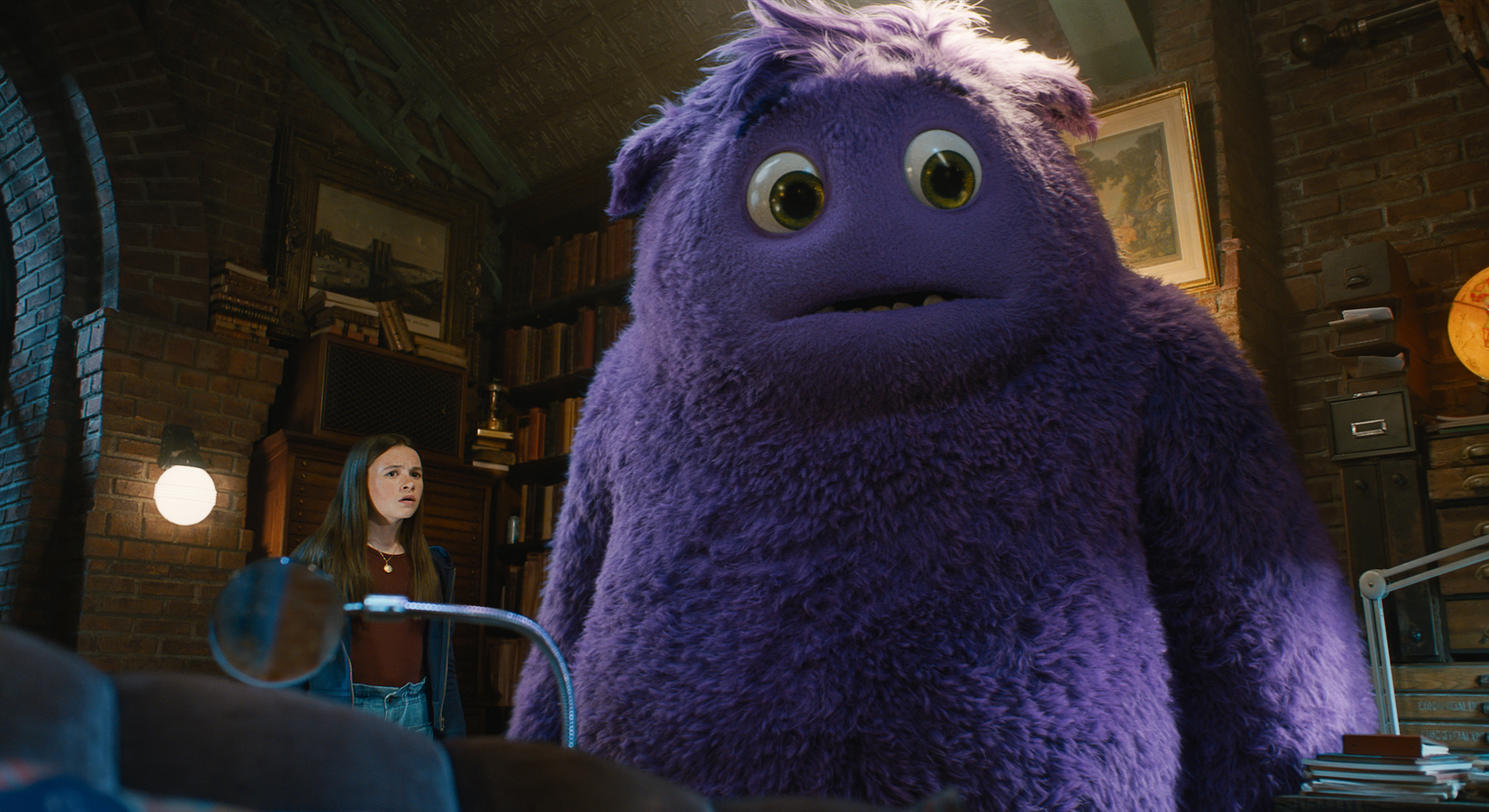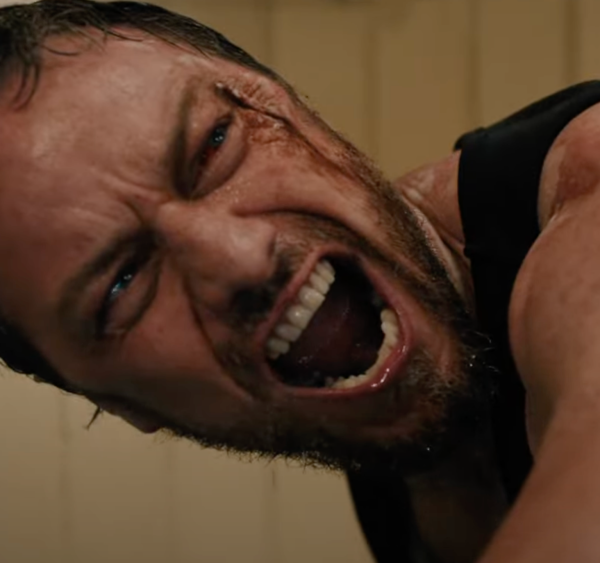There’s a new, scary reality sinking in for both Paramount shareholders and its board of directors: What if nobody buys Paramount?
Not much more than a week ago it felt like a foregone conclusion that David Ellison would buy out Shari Redstone’s controlling stake in Paramount Global for a few billion bucks, and force Paramount to buy his Skydance for a few billion more bucks than that. That’s what Redstone wanted to happen at least, and what Redstone wants she’s pretty well set up to get. She has the shares to force whatever outcome she wants and stop whatever one she doesn’t.
But there was another suitor who could no longer be ignored.
Apollo Global Management, a private-equity fund, has been knocking on Redstone’s door for months. It’s pounding now. At first, Apollo offered $11 billion to buy out Paramount’s studio. No way, no how, Redstone said. The studio is the company’s crown jewel, and it was practically her father Sumner Redstone’s dying wish it not be sold off. OK, that’s probably an exaggeration — but he felt strongly about the issue. So has Shari — at least, historically. But everything seems on the table these days.
The offer was rejected rather quickly, hoever. Shari preferred Ellison’s plan, and even had passing interest from David Zaslav of Warner Bros. Discovery (and some from Comcast — at least in terms of merging its Peacock with Paramount+). Byron Allen came with a huge $30 billion check for the whole thing, but pretty much everyone involved expected the check would bounce. It got media coverage, including here on IndieWire, but no real traction in the boardroom, which is where it counts.
Apollo came back to the table with a $26 billion offer for the whole thing. Still no one was sitting across from them. Again, the realness of the money was a real concern, as was the likelihood that a private-equity firm would slice and dice up Paramount Global to unlock shareholder value and turn a tidy profit. Common-stock (non-voting) shareholders in Paramount much preferred Apollo’s plan — it was probably the only way to cash out and get some cash. And when Apollo pulled in Sony, Option B became realer — and harder to ignore — especially when the previously established 30-day window for exclusive negotiations with Ellison came and went without a deal.

What is going on? Not much, it seems. Well, at least not outside of some powerful Ellison allies publicly coming forward with their support for a Paramount Skydance (our working title). Endeavor’s Ari Emanuel, James Cameron, CAA’s Bryan Lourd, Jeffrey Katzenberg, etc. Some of those people don’t even work for Ellison.
The general inaction has led analysts to consider Paramount’s status quo future. They want to know (1) who’s calling the shots, (2) when would a deal happen, and (3) what would happen if there is no deal and Paramount just stays Paramount? At least, for a while.
Well, for starters, it will need a new CEO. In anticipation of a deal, Paramount booted Bob Bakish, who reportedly stood in the way of one. The company now has an “Office of the CEO” consisting of CBS boss George Cheeks, Paramount Pictures chief Brian Robbins, and MTV Entertainment Group President Chris McCarthy. Whatever that means.
One industry source we spoke with felt the three-pronged CEO isn’t going to work for long and looked at it as a “Band-Aid” for Paramount’s present predicament. Maybe they announce a few development deals or “Sonic the Hedgehog 4” in the interim, but there’s not going to be an acquisition, and the executives have little money to throw around. The source also doubted that any of the three have a long term vision for what the company as a whole will look like in the future, even if McCarthy’s name is officially the one being listed on an SEC form.
It’s a little like “rearranging deck chairs on the Titanic,” Emarketer senior analyst Ross Benes said in a statement to IndieWire, with the company being steered by a family whose personal interests don’t necessarily match with what shareholders want, and that’s not going to change even with three CEOs leading the charge.
“With a mountain of debt and its primary assets, namely TV, continually losing value, the deep problems facing the company extend beyond any single executive,” Benes continued.
Warren Buffett isn’t going down with the ship. The billionaire said last week he sold all of his $2.6 billion stake in Paramount that he had made just two years ago — and beyond. Buffett had been the company’s largest non-voting shareholder, and says he “lost quite a bit of money” in the process.
“Owning Paramount made me think even deeper, but I certainly looked harder about the whole question of what people do with their leisure time and what the governing principles are of running an entertainment business of any sort, whether it’s sports or movies or whatever it might be,” Buffett said at Berkshire Hathaway’s annual meeting. “I think I’m smarter now than I was a couple years ago, but I also think I’m poorer because I acquired the knowledge in the manner I did.”

Paramount is also poorer. As we write this, it is no longer even a $9 billion company by market cap.
Much of its lost value comes from the fact that streaming has not (and probably will never) replace the linear-TV business model. Paramount+, which this year will still not turn a profit, cannot carry the burden that is cable TV.
CBS still works — especially for live sports — but the generally accepted narrative is that linear television on the whole is dying. If true, Paramount Global’s cable-channel lineup may be the first laid to rest. Its Viacom suite of cable networks (MTV, VH1, Comedy Central, BET, Nickelodeon, Paramount Network, etc.) is perhaps the least-desirable bundle in the entire genre.
But Paramount ad sales chief John Halley does not generally accept the narrative.
“It’s not really true that linear is dying,” Halley told IndieWire in an interview timed to the upfronts, when TV companies woo advertisers to their platforms. “People view things through the prism of their own experience.”
Halley says the “reality” is that while “entertainment product tends to be on-demand and digitally consumed,” cable still works as a medium for reality television. He says it is just incorrect to view broadcast, cable, and streaming as anything other than one ecosystem.
“We’re putting content where people are,” Halley said. “We don’t think of ourselves in terms of those broadcast, cable, and streaming verticals. We’re a content company, we distribute across (all of them) and our strategy and program investment and where it goes is ultimately going to be dictated by the viewer and consumer patterns.”
Maybe so, but it’s not really working from a business standpoint.
If you can’t get a good deal, you’ve got to deal with what you’ve got. Analyst Rich Greenfield of Lightshed writes that a Sony-Apollo deal looks even less likely and “will instead decide to go it alone under new management.”
Because Sony is based internationally in Japan, Greenfield explains an M&A deal could take over a year, and that would prevent Paramount from doing anything to improve its balance sheet in that time. Greenfield is predicting Paramount waits to revisit a merger — be that Skydance or otherwise — as late as 2025, with the caveat that National Amusements could sell a minority stake at least.
So what will they do in the meantime? Greenfield thinks they need to scale back Paramount+ dramatically and find a partner for a bundle. But they might also think about finally selling BET or Showtime or some other assets, all things Bakish was reluctant to do.
But the industry source says there are other questions looming: What happens with its carriage arrangement with Charter (no updates, we’re told today), which expired at the end of April? What do you do with Pluto TV? How do you whip the distribution apparatus back into shape?
So whether that’s Ellison, Tony Vinciquerra, or George Cheeks, it’s all a big What If.






